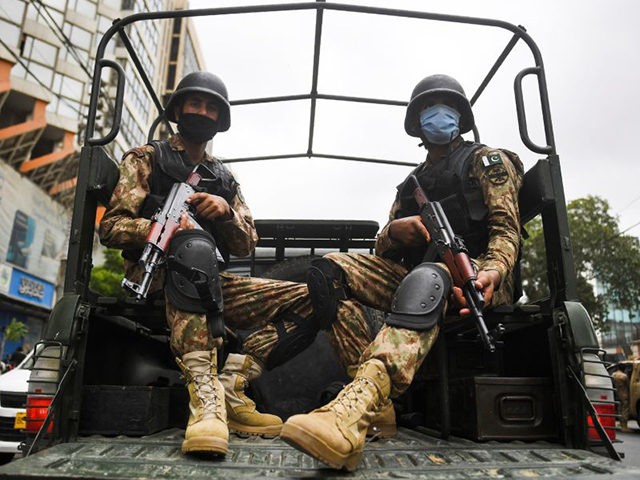Pakistan’s government has ordered a nationwide lockdown from May 8-16 during the Islamic Eid al-Fitr holiday — traditionally a peak time for travel and shopping — to curb the spread of the Chinese coronavirus amid a surge in cases across the country.
Eid al-Fitr is scheduled to last from May 12-13 in Pakistan this year. The holiday marks the end of the Islamic holy month of Ramadan, which began on April 13 and ends on May 13 in Pakistan this year.
“Due to the deteriorating situation in [regard to] Corona[virus] in the country, all markets, shopping malls, trade, and business centers will remain closed from May 8 to 16,” Pakistan’s federal government wrote in a Twitter statement on May 7.
“Bakeries, medical stores, medical and vaccination centers, petrol pumps, etc., including fruit, vegetable, milk, meat, and other essentials shops will remain open,” the statement read.
“All kinds of inter-provincial, inter-city & intra-city public transport will be banned from 8 to 16 May,” the Pakistan federal government wrote in a separate Twitter statement the same day.
“We realize that the mobility restrictions put into place from today till the 16th are going to cause inconvenience. These measures have been necessitated by the extremely dangerous situation which has been created in the region with the spread of virulent mutations of the [Chinese corona]virus,” Pakistan’s Federal Minister for Planning, Development, Reforms, and Special Initiatives, Asad Umar, wrote in a Twitter statement on May 7.
Pakistan recorded 3,447 new cases of the Chinese coronavirus cases and 78 new deaths from the disease in the 24 hour period from May 9-10.
Many Pakistanis flouted the Eid al-Fitr lockdown order Saturday, according to Radio Free Europe/Radio Liberty (RFE/RL)’s Gandhara service.
“Defying the restrictions, large crowds of people thronged to markets and shopping centers in cities and towns across the country on May 8 to shop for the upcoming Eid,” the U.S. government-funded broadcaster wrote.
Pakistan’s government exempted mosques from the Eid al-Fitr lockdown order as the country’s federal government fears confrontation and possible reprisals from the country’s powerful Islamic clerics. Imams wield an outsized degree of political influence within Pakistan, which officially designates Islam as its state religion. Pakistan’s Imams successfully pressured Pakistan Prime Minister Imran Khan into easing some gathering restrictions at mosques during Ramadan last year while the country was still under federal lockdown orders to curb coronavirus infections.
Mosques across Pakistan “have been packed each night throughout Ramadan — with few people wearing masks,” the U.S. government-funded Voice of America reported on May 8.

COMMENTS
Please let us know if you're having issues with commenting.